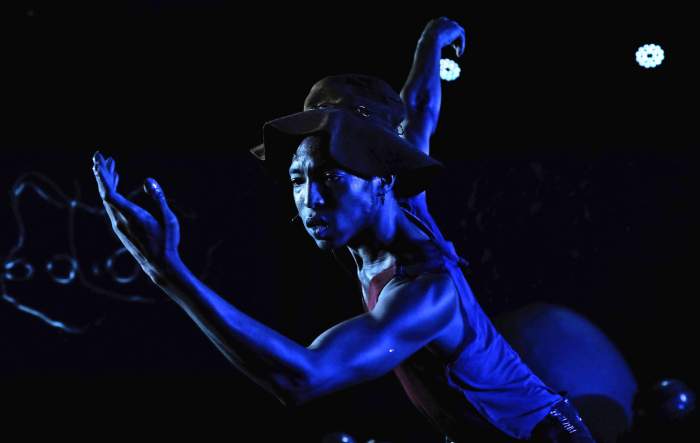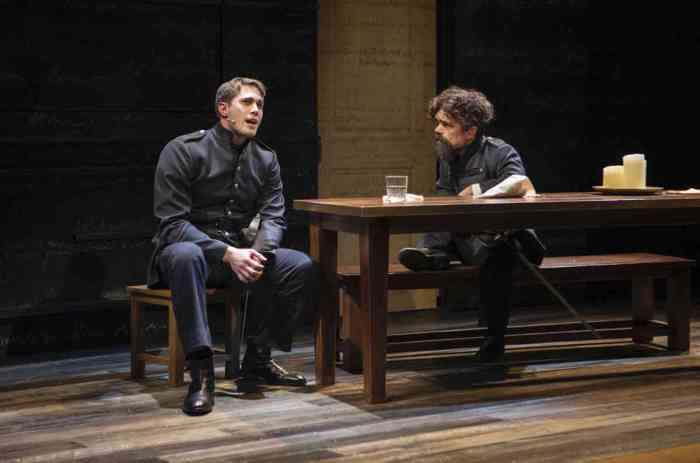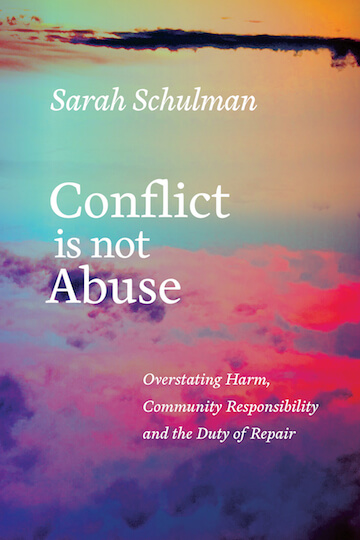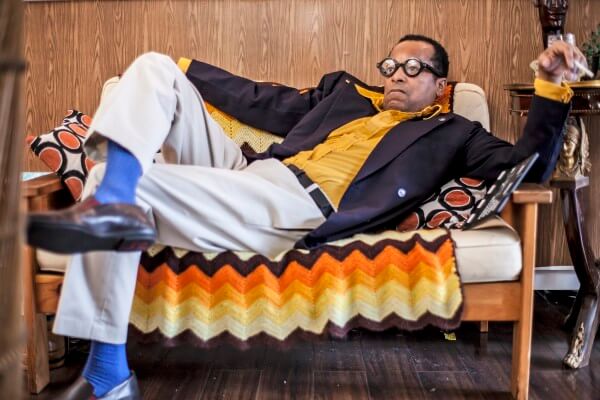As the summer ends, two hangout films with LGBTQ talent that are streaming this month evoke the feeling of long, lazy days. Other titles of interest this month include a horror film, a teen romance, an animated series, and two features by queer filmmaker Stephen Winter.
We Need to Do Something
“We Need to Do Something” (streaming on demand September 3) opens during a storm as Robert (Pat Healy) and Diane (Vinessa Shaw), and their kids, Melissa (Sierra McCormick) and Bobby (John James Cronin), take refuge in the bathroom. The tensions between the family members only escalate as a fallen tree traps them inside and the power goes out. Sean King O’Grady’s claustrophobic film will certainly resonate with folks under lockdown as the family’s situation worsens over time. However, flashbacks reveal that Melissa and her girlfriend Amy (Lisette Alexis), who was into necromancy, were dabbling in spells, which may be the root of the family’s problems. “We Need to Do Something” has some very effective moments — as when Robert and Diane lap up the blood Melissa spews in one scene. Metaphors abound, and the relationship between Melissa and Amy is, perhaps, a cautionary tale. But the real highlight of this chamber piece is the reliable character actor Pat Healy’s delightfully unhinged performance.
It Takes Three
Out gay actor-turned-filmmaker Scott Coffey’s film (on digital and on demand September 3) is yet another variation on “Cyrano,” cowritten by the director’s partner, author Blair Mastbaum. Gawky Cy (Jared Gilman) a teen with two moms (Lori Alan and Nicole Sullivan), helps the cute but dumb Chris (David Gridley) romance Roxy (Aurora Perrineau), the new girl at school, by catfishing her. In the process, of course, Cy falls for her as well. The film is squarely aimed at the social media generation — Chris’ IRL date with Roxy goes sideways when Cy can’t coach him from afar — but there are as many sweet moments as cringe-inducing ones, like Cy’s epic fail of a prom-posal. The cast leans into the oft-trod material with aplomb, playing up their characters’ insecurities, with the confident Perrineau the standout.
Samantha Rose
Non-binary actor Sam Rose plays the title character in “Samantha Rose” (available digitally September 7), a genial, low-key drama about a twentysomething trying to figure out her future. When her mom, Diane (Marla Freeman) tells Sam to move out of the New York City apartment they share, Sam flies out to see her father, (Nicholas Horiatis) in Oregon. Once there, she reunites with Taylor (Johnny Dawson), her childhood friend, who now lives with Matt (Matthew Danger Lippman), Luna (Natalia Ruiz-Heinsohn), Vili (Vilém McKael), and Allie (Allison Berman). The six friends hang out and go swimming, work harvesting grapes, play cards, sing songs, and go tubing. Viewers who sink into the rhythm of their lives will appreciate this snapshot of Sam’s life as she learns to claim her independence. Writer/director Andrew Morgan shot this modest film during the pandemic, and it provides an auspicious debut for Sam Rose, who gives a terrific performance as a young woman who is paralyzed by indecision.
Chicago Party Aunt
The brash animated series, “Chicago Party Aunt,” (dropping September 17 on Netflix) features Diane Dunbrowski (Lauren Ash) as a loud, foulmouthed hairdresser whose husband walks out on her. And then both her job and her apartment are in jeopardy. Forced to embrace extreme change, she impresses her boss Gideon (RuPaul) and assumes care for her gay nephew Daniel (out actor Rory O’Malley), who has deferred his freshman year at Stanford. Wacky adventures ensue. “Chicago Party Aunt” features a character and humor that is both crass and shrill, but it is not without some heart.
The Carnival
“The Carnival” (available September 21 on Amazon, Dekkoo, TLAGay.com, Vimeo, and iTunes) is an impressionistic and immersive film set in Gualeguaychú, Entre Ríos, in eastern Argentina. Directors Marco Berger and Martín Farina mix documentary and interview footage with some fictional elements as they profile Vilmar Paiva and Franco Heiler as they prepare for the annual summer carnival. The filmmakers observe the guys hanging out, drinking, sitting in the pool, and dancing, as well as dressing and undressing. (The camera is frequently focused on various guys’ buff chests, crotches, and butts). “The Carnival” is an affectionate portrait of these two friends as they rehearse and perform, but Vilmar is troubled because he may not be participating in the parade this year. Meanwhile, two actors, Gaston Re and Julieta Tramanzoli, arrive to partake in the festivities. The enthusiasm of the guys for this annual event is infectious, and Berger and Farina showcase that, along with the homoerotic camaraderie, at beach parties, the parade, and the changing room. Berger and Farina succeed in their aim to capture the “soul and spirit” of the carnival. If this film’s ending feels rushed, it may be because viewers will want more.
Chocolate Babies
Queer writer/director Stephen Winter’s radical 1996 debut feature, “Chocolate Babies,” (available for streaming on the Criterion Channel starting in September) concerns a “queer terrorist group” comprised of a handful of Black and Asian HIV+ activists. Fighting for respect and justice in New York City, they assault Congressman Freeman (Bryan Webster) who may have the AIDS acquisitions files, a nefarious list of HIV+ people in the city. Sam (Jon Kit Lee), one of the group members, works in the Freeman’s office—the Congressman is secretly having an affair with him—but Sam really loves Max (Claude E. Sloan). The film also features storylines about Max’s HIV+ sister, Jamela (Suzanne Gregg Ferguson), and group members Larva (Dudley Findlay Jr.), and Lady Marmalade (Michael Lynch). “Chocolate Babies” is a bit crudely made, but Winter’s film thoughtfully addresses several critical topics ranging from parent/child conflicts and issues of faith, to homophobic news reports and politicking.
Jason and Shirley
The politics of race and sexuality are also part of Winter’s other film on Criterion, “Jason and Shirley.” The 2015 film, a fiction, plays with truth and illusion as it considers what might have transpired when Shirley Clarke (Sarah Schulman), a straight, white, Jewish filmmaker, interviewed the black gay sex worker and would-be entertainer Jason Holliday (Jack Waters) for her landmark 1967 film “Portrait of Jason.” Schulman is ingratiating as Shirley, and Waters is especially good with his comic timing, capturing both Jason’s flamboyance and his seriousness as he delivers his amusing one-liners. Both inhabit their roles fully and are great fun to watch. However, the film is factually inaccurate (perhaps deliberately?) which may frustrate viewers.






























